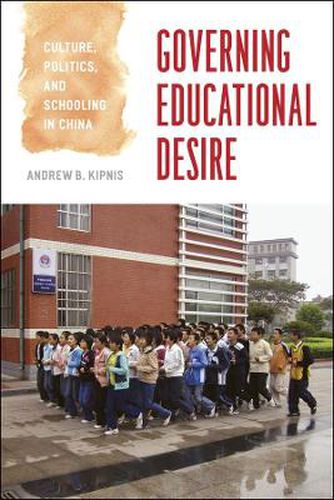Readings Newsletter
Become a Readings Member to make your shopping experience even easier.
Sign in or sign up for free!
You’re not far away from qualifying for FREE standard shipping within Australia
You’ve qualified for FREE standard shipping within Australia
The cart is loading…






That parents in China greatly value higher education for their children is a well-known aspect of contemporary Chinese culture, but the intensity and effects of their desire to achieve this goal have largely gone unexamined - until now. Governing Educational Desire explores this universal desire for a college education and its vast consequences, which include household and national economic priorities, birthrates, ethnic relations, and patterns of governance. Where does this desire come from? Andrew B. Kipnis approaches this question in four different ways. First, he focuses in detail on one Chinese county, Zouping. Then, he widens his scope to examine the provincial and national governmental policies that affect educational desire. Digging into the history of education in East Asia, Kipnis moves on to explore the way contemporary governing practices were shaped by the Confucian examination system. Finally, to discover the universal in the local, he compares the social dynamics of a cross-section of Zouping communities. In doing so, Kipnis provides not only an illuminating analysis of education in China but also a thought-provoking reflection on what educational desire can tell us about the relationship between culture and government.
$9.00 standard shipping within Australia
FREE standard shipping within Australia for orders over $100.00
Express & International shipping calculated at checkout
That parents in China greatly value higher education for their children is a well-known aspect of contemporary Chinese culture, but the intensity and effects of their desire to achieve this goal have largely gone unexamined - until now. Governing Educational Desire explores this universal desire for a college education and its vast consequences, which include household and national economic priorities, birthrates, ethnic relations, and patterns of governance. Where does this desire come from? Andrew B. Kipnis approaches this question in four different ways. First, he focuses in detail on one Chinese county, Zouping. Then, he widens his scope to examine the provincial and national governmental policies that affect educational desire. Digging into the history of education in East Asia, Kipnis moves on to explore the way contemporary governing practices were shaped by the Confucian examination system. Finally, to discover the universal in the local, he compares the social dynamics of a cross-section of Zouping communities. In doing so, Kipnis provides not only an illuminating analysis of education in China but also a thought-provoking reflection on what educational desire can tell us about the relationship between culture and government.